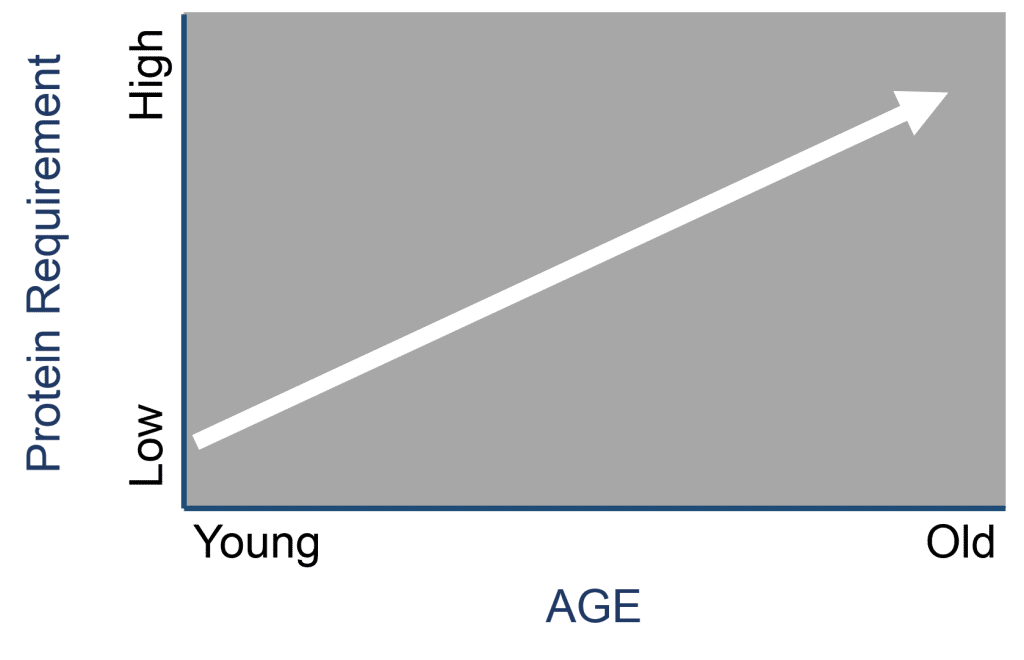Protein is often regarded as the cornerstone of muscle development, but most people don’t realize their intake habits may be holding them back. Understanding how much protein your body actually needs—and how to get it efficiently—can be the difference between maintaining lean muscle and unintentionally accelerating muscle loss.
Protein Is a Fixed Number—Not a Percentage
One of the most common mistakes people make is treating protein as a percentage of their total calorie intake. In reality, protein needs to be measured in grams. It’s a fixed number that should be prioritized first in any meal plan—especially for those trying to build or maintain muscle mass.
To estimate your own daily protein needs based on your weight, activity level, and goals, we recommend using this free protein calculator. It’s a practical tool for determining whether you’re meeting your protein requirements for health, fitness, or recovery.
For example, a person eating 6,000 calories per day is likely to meet their protein needs by default. But most people—especially older adults and those eating fewer calories—must be far more intentional. Protein should not be left to chance.
The Protein-First Approach to Meals
Planning meals with protein as the foundation is a practical and effective strategy. A target of 25 to 30 grams of protein per meal is a solid baseline. This becomes especially important for individuals who eat just one or two meals per day, where hitting an optimal protein intake becomes more difficult.
Many people underestimate how little protein they consume. When hunger or fatigue sets in, it’s often due to a protein deficit. A single meal like a hamburger, even if it’s half a pound of lean meat, likely contains only 40 grams of protein. If that’s your only significant meal of the day, it’s not enough to sustain muscle mass or support recovery.
Why Protein Intake Declines with Age
Older adults tend to eat fewer calories overall, and as a result, consume less protein. This is a major issue because protein is essential for maintaining bone structure and preventing the loss of lean muscle mass. When meals consist of easy-to-digest foods like toast or oatmeal, the protein profile suffers, leading to long-term consequences such as frailty and reduced mobility.

Amino Acids: The Missing Link
Protein’s primary function is to supply essential amino acids. These nine essential amino acids must come from the diet because the body can’t produce them on its own. To ensure that muscle-building is supported, some individuals choose to supplement with amino acids around workouts or meals.
Consuming amino acid powders or capsules before and after workouts helps “spike” the body’s amino acid pool, ensuring that there are enough building blocks available for recovery and growth. This strategy is particularly useful for those who can’t consume large volumes of whole food protein or are on calorie-restricted diets.
Why Losing Lean Body Mass Slows Your Metabolism
Protein intake directly affects body composition. When protein is too low, the body begins to break down lean muscle mass for energy. For every pound of lean body mass lost, metabolism slows, making fat gain more likely. This is why someone can weigh the same at 80 as they did at 20, but with drastically different body composition—less muscle, more fat.
This loss of muscle mass sets off a negative chain reaction: slower metabolism, less strength, and reduced physical function. It’s a cycle that can be avoided by prioritizing protein and maintaining regular resistance training.
GLP-1s and the Rise of Muscle Loss in Diet Culture
With the growing popularity of GLP-1 inhibitors for weight loss, many people are consuming fewer calories than ever—but without enough protein to preserve muscle. Rapid weight loss that isn’t protein-supported leads to significant muscle deterioration. This creates a situation where individuals may lose weight on the scale but sacrifice their strength, metabolism, and long-term health.
Even a single pound of muscle lost is hard to replace. It’s vital that anyone on a weight loss program includes sufficient protein to preserve every bit of lean mass. Every pound of muscle contributes to a higher metabolic rate and greater overall vitality.
Final Thoughts
Protein is more than a number—it’s a necessity for metabolic health, strength, and longevity. Without adequate protein intake, especially as we age, the risk of muscle loss, brittle bones, and weight gain increases. Whether you’re in your 20s or your 70s, getting enough protein each day is non-negotiable.
Video Summary
For a full breakdown of this discussion, including practical strategies and real-world examples, watch the video below.
To learn more about nutrition, fitness, and health from professionals and experts, visit our channel and subscribe: https://www.youtube.com/@Vitality-and-Wellness



